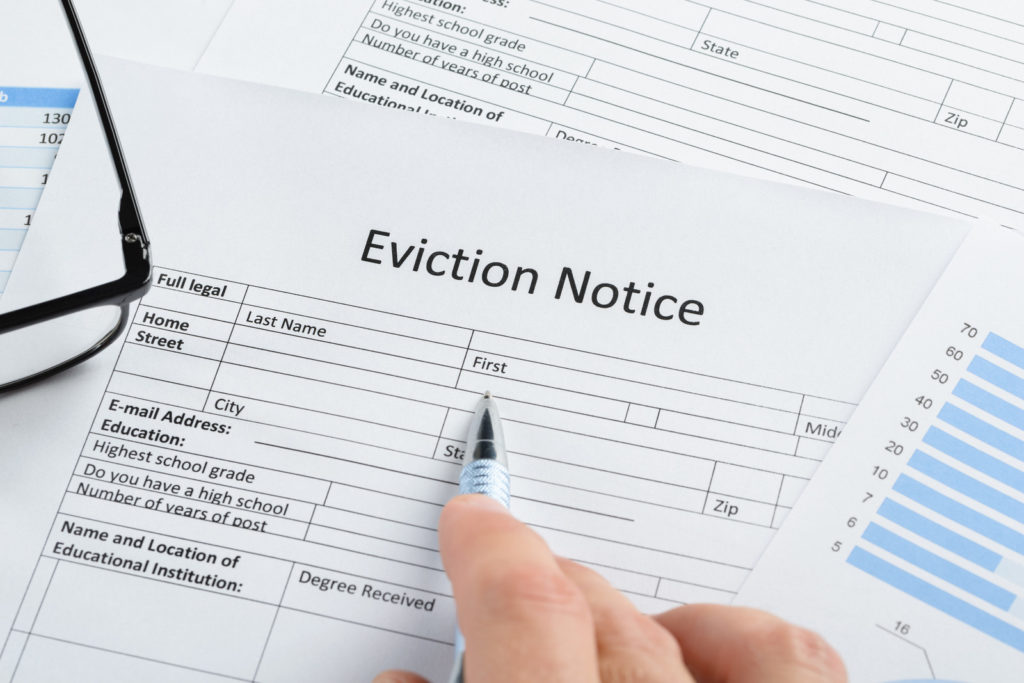


If you own a rental property in Harris County and you have a problem tenant, this can be a truly stressful experience. This goes doubly so if your tenant is breaking the law or is acting in a manner that has you worried for the safety of your property or even your own safety. It’s at this point that it’s obvious you’ll have to evict the problem tenant. You’ll also need as much help as you can get. Here’s how to evict a tenant in Harris County.
The first step in evicting a tenant in Harris County is to provide notice to vacate the property. You’re required by law to either hand over the notice in person or to mail it to your tenant. If you’re delivering the notice in person, you don’t need to hand it directly to the tenant; if he or she shares the property with anyone over the age of 16, you can deliver it to this other person and still be in compliance with the law. Conversely, simply sending the notice in the mail, either through regular letter post, by registered mail, or by certified mail with return receipt requested will also satisfy these requirements. If this proves impossible and for whatever reason you cannot access the property yourself to leave the notice on the inside of the front door, you’re permitted to leave it on the outside as long as it’s affixed securely.
If you have evidence of your tenant violating the rental agreement, you will need to provide this evidence at your eviction suit after filing for it. If you do win this suit, you will be given a judgment in your favor that grants you possession of the property. Accompanying this judgment is a legal document known as a writ of possession. When you receive such a writ, the Harris County Constable or Sheriff will execute it by first posting a warning on the front door of the tenant’s rental unit that informs the tenant when they will be evicted (at least 24 hours after the time of posting). On the day that the officer executes the writ of possession, the tenant and all others living with him or her will be instructed to leave the property. If they do not, they will be removed physically, along with all of their possessions. After this has been accomplished, possession of the property will return to you.
Once your problem tenant has vacated the property and you’ve retaken possession, it’s time to get into that particular rental unit and see about returning it to a proper state so that you can rent it out once again. This can represent a significant cash outlay if there is a large amount of damage left behind by the tenant – broken windows, holes in sheetrock or plaster, and so on – or it could simply mean a fresh coat of paint on the walls and a deep clean to the fixtures, appliances, and floors. Either way, your security deposit from the tenant can make the expense more manageable.
Once you’ve finished your cleanup it’s time to list your rental property once again, with an eye towards ensuring your next tenant is going to be more responsible. Fully vetting any prospective tenants by contacting their references or even conducting background checks are all excellent strategies to ensure you won’t have to go through the eviction process again.